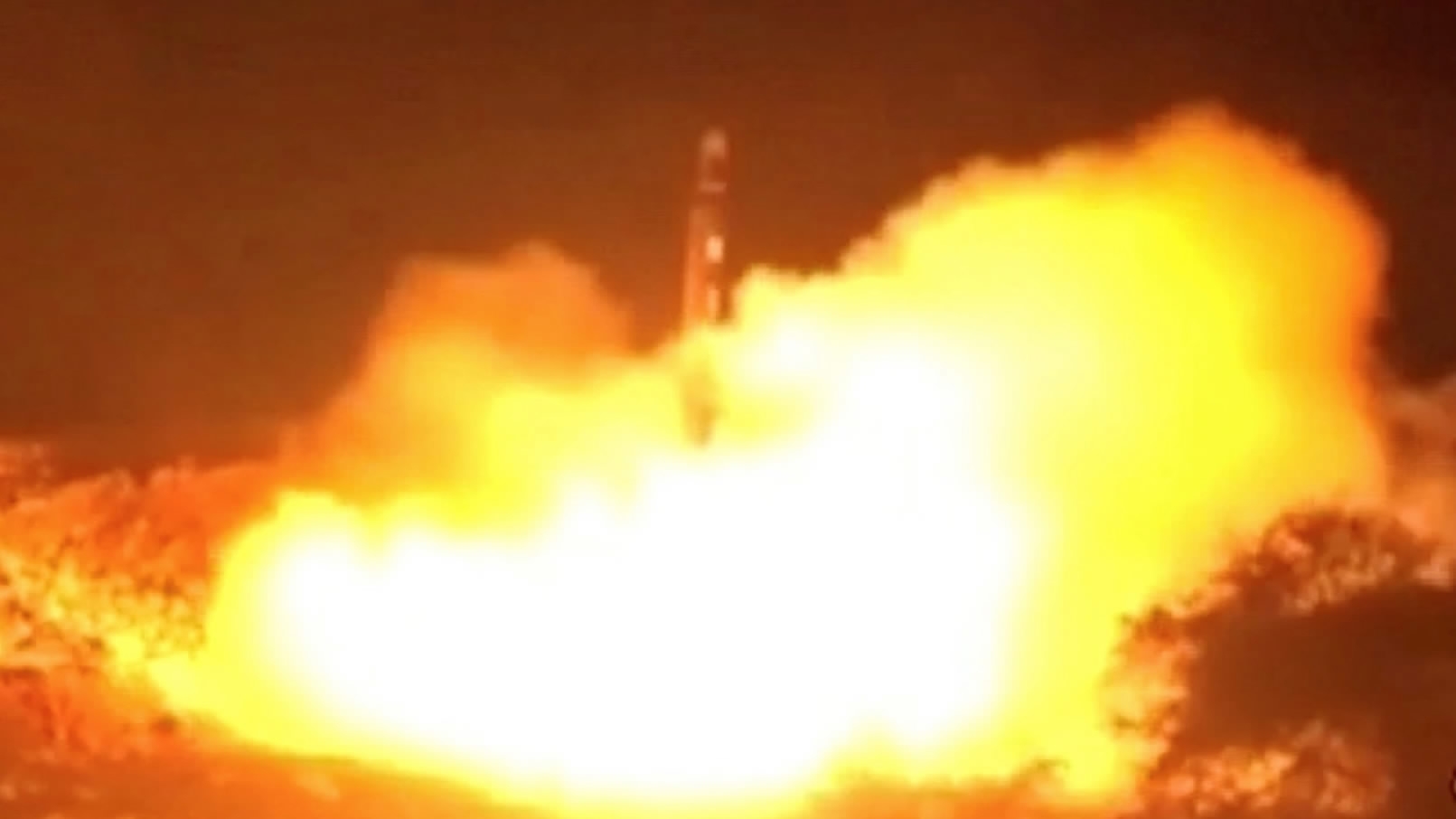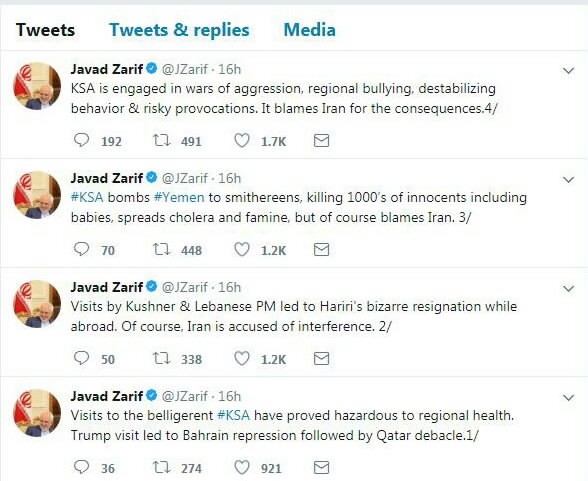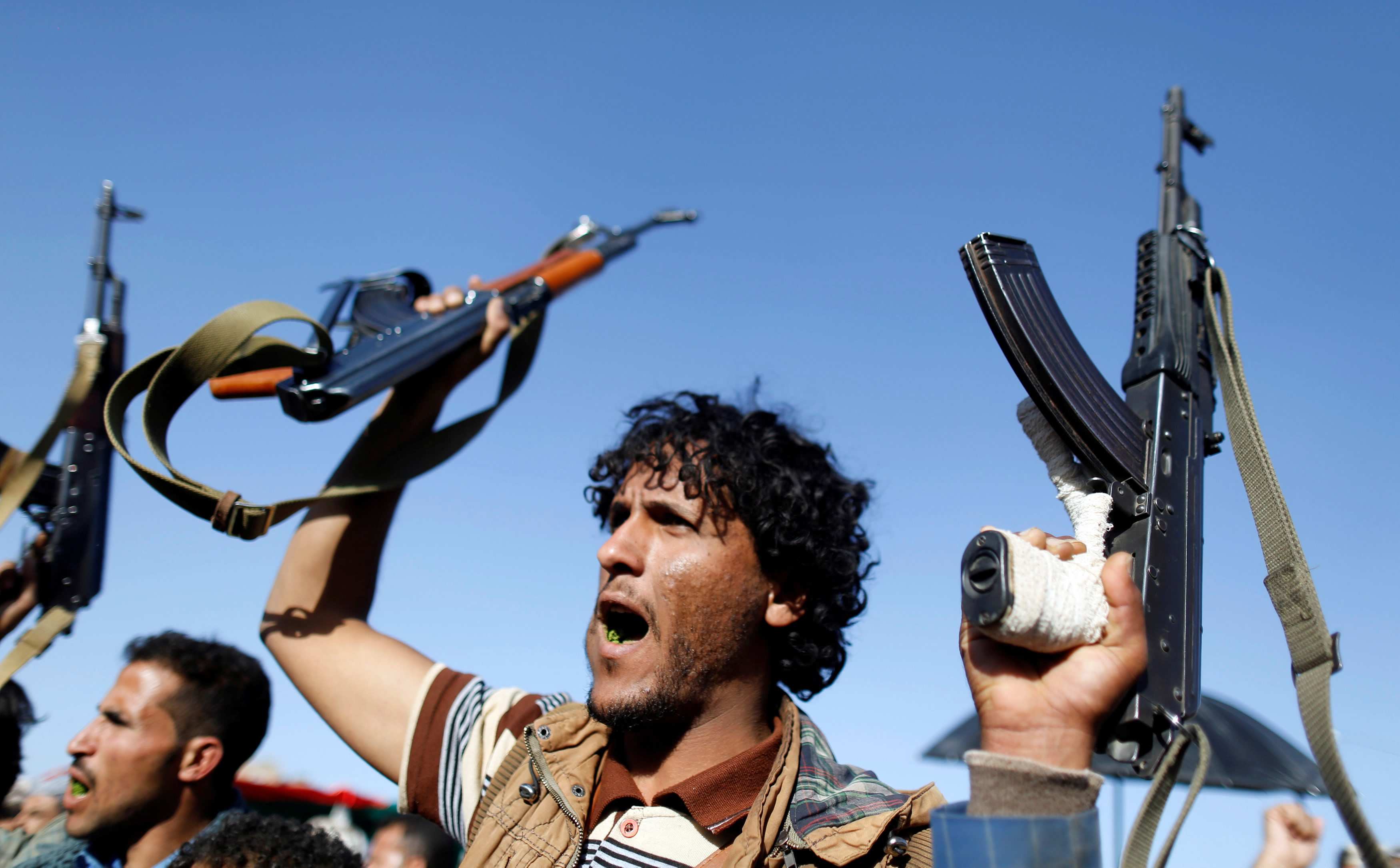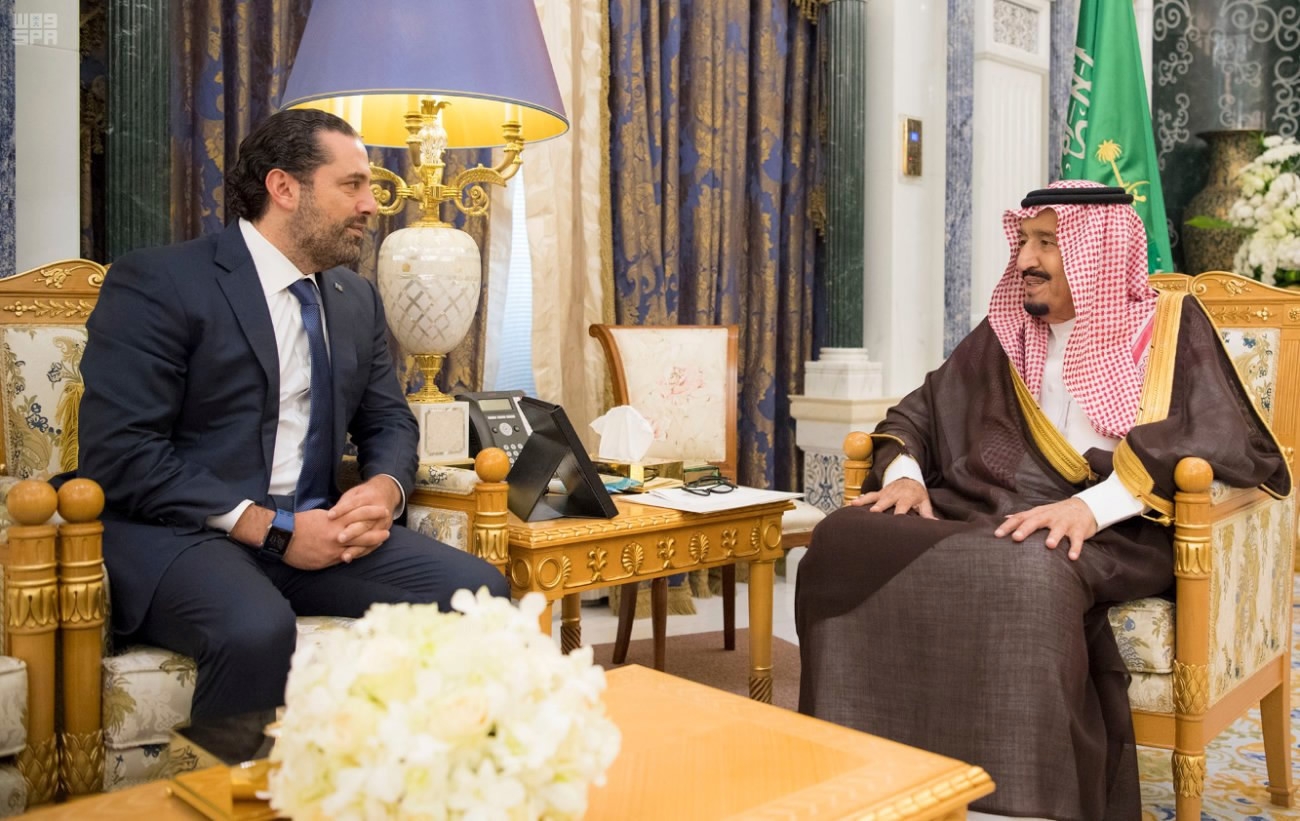
World
17:02, 07-Nov-2017
Saudi blames Iran, says Yemen missile attack ‘an act of war’
CGTN

Saudi Arabia and Iran traded fierce accusations over Yemen as Riyadh said a rebel missile attack "may amount to an act of war" and Tehran accused its rival of war crimes.
Oil prices made rapid gains as geopolitical tensions surged between Riyadh and Tehran, sparking fears of a conflict that could disrupt supplies from two major producers.
Tensions have been rising between Sunni-ruled Saudi Arabia and predominantly Shiite Iran, which back opposing sides in wars and power struggles from Yemen to Syria.
On Monday, a Saudi-led military coalition battling Tehran-backed rebels in Yemen said it reserved the "right to respond" to a missile attack on Riyadh at the weekend, calling it a "blatant military aggression by the Iranian regime which may amount to an act of war".
Saudi Foreign Minister Adel al-Jubeir also warned Tehran.
"Iranian interventions in the region are detrimental to the security of neighboring countries and affect international peace and security," he tweeted. "We will not allow any infringement on our national security."
Tehran hints at US links to crisis

A screenshot of Iranian Foreign Minister Mohammad Javad Zarif's tweets.
A screenshot of Iranian Foreign Minister Mohammad Javad Zarif's tweets.
Iran's Foreign Minister Mohammad Javad Zarif responded with dismissive tweets over the Kingdom of Saudi Arabia (KSA).
"KSA bombs Yemen to smithereens, killing 1000s of innocents including babies, spreads cholera and famine, but of course blames Iran," he wrote.
"KSA is engaged in wars of aggression, regional bullying, destabilizing behavior & risky provocations. It blames Iran for the consequences."
Zarif also made a veiled reference to US links to the crisis in the region.
“Visits [by US officials] to the belligerent KSA have proved hazardous to regional health. [US President Donald] Trump visit led to Bahrain repression followed by Qatar debacle,” he said in one of his tweets.
“Visits by [Trump’s son-in-law and presidential advisor Jared] Kushner & Lebanese PM [Saad al-Hariri] led to Hariri's bizarre resignation while abroad. Of course, Iran is accused of interference,” he added.
Saudi forces on Saturday intercepted and destroyed a ballistic missile near Riyadh international airport, reportedly fired from Yemen by Shiite Huthi rebels.
It was the first reported Huthi strike to reach Riyadh and threaten air traffic, underscoring the growing threat posed by the conflict on Saudi Arabia's southern border.
The coalition on Monday sealed off the air, sea and land borders of Yemen, where it has been battling rebels in support of President Abedrabbo Mansour Hadi's internationally recognized government since 2015.
Two humanitarian aid flights to Yemen had to be put on hold, the United Nations said.
An Iranian foreign ministry statement quoted spokesman Bahram Ghassemi as saying the coalition's accusations were "unjust, irresponsible, destructive and provocative".
Ghassemi said the missile was fired by the Huthis in response "to war crimes and several years of aggression by the Saudis".
The missile attack was "an independent action in response to this aggression," he said, adding that Iran had nothing to do with it.
Oil prices shoot up
As both the regional rivals traded accusations, the impact was seen in the global oil prices which shot up rapidly before retreating slightly in early Asian trade on Tuesday as traders engaged in profit-taking after oil from both Riyadh and Tehran reached levels not seen in over two years.
"Tensions between Iran and Saudi Arabia look to be a major disruptor with markets concerned that supply could be cut off should there be any conflict," said Shane Chanel, equities and derivatives adviser at ASR Wealth Advisers in Sydney.
At about 0330 GMT, US benchmark West Texas Intermediate was up four cents to 57.39 US dollars a barrel while
Brent crude was down eight cents to 64.19 US dollars a barrel.
In the mid-term, prices are likely to continue gaining ground with an OPEC-led cap on supplies likely to continue into 2018, said Greg McKenna, chief market strategist at AxiTrader.
Riyadh offers $440 mln rewards on Huthi leaders

Huthi followers wave their weapons as they attend a rally to show support to
the Palestinians in Sanaa, Yemen, on November 6, 2017. /Reuters Photo
Huthi followers wave their weapons as they attend a rally to show support to the Palestinians in Sanaa, Yemen, on November 6, 2017. /Reuters Photo
Critics have accused the Saudi-led coalition of not doing enough to prevent civilian deaths in its air war in Yemen, where more than 8,650 people have been killed since the intervention began.
Repeated attempts to bring about a negotiated settlement to the conflict have failed, including a series of UN-backed peace talks.
Saudi Arabia has blamed the Huthis for failures, and on Monday offered rewards totaling 440 million US dollars for information on 40 senior officials among the rebels.
Topping the list, with a 30-million US dollar reward for tips leading to his capture, was the group's leader Abdulmalik al-Huthi.
The Huthis in 2014 joined forces with their longtime enemy, Yemen's ex-president Ali Abdullah Saleh, capturing the capital Sanaa and forcing Hadi's government to operate from the southern city of Aden.
Analysts said it was unclear how far Riyadh would be willing to go in the escalating confrontation.
The kingdom is in the midst of an unprecedented purge of its upper ranks, with dozens of senior figures arrested at the weekend as 32-year-old Crown Prince Mohammed bin Salman consolidates his grip on power.
Prince Mohammed, who is also defense minister, is seen as a key proponent of the intervention in Yemen.
Analyst Randa Slim of the Middle East Institute said it was unclear whether the Saudi leadership had "thought through an escalation of the scale they're hinting at".
Compounding concerns of an escalation, she said, is the fact that US President Donald Trump's administration has also taken a hard line against Iran "and may not send a deterrent message" to the Saudi leadership.
Saudi blames Lebanon of declaring war

Saudi King Salman bin Abdulaziz Al Saud (right) meets with former Lebanese Prime Minister Saad al-Hariri in Riyadh, Saudi Arabia, on November 6, 2017. /Saudi Press Agency Handout Photo via Reuters
Saudi King Salman bin Abdulaziz Al Saud (right) meets with former Lebanese Prime Minister Saad al-Hariri in Riyadh, Saudi Arabia, on November 6, 2017. /Saudi Press Agency Handout Photo via Reuters
The Saudi-Iran rivalry also echoed this weekend in the resignation of Lebanon's prime minister Saad Hariri, a Riyadh protege who said he was stepping down because of the "grip" of Iran and its ally Hezbollah on the country.
Hezbollah chief Hassan Nasrallah hit back on Sunday, saying Hariri's resignation had been "imposed" by Saudi Arabia.
Iran rejected Hariri's words as "baseless" and said his resignation was "designed to create tensions in Lebanon and in the region".
Saudi Arabia accused Lebanon on Monday of declaring war against it because of aggression by the Iran-backed Hezbollah.
Hariri, who announced his resignation in Riyadh, on Monday met King Salman and "reviewed the situation in Lebanon", the state-run Saudi Press Agency reported.
Saudi Gulf affairs minister Thamer al-Sabhan said the Lebanese government would “be dealt with as a government declaring war on Saudi Arabia” because of what he described as aggression by Hezbollah.
Faulting the Hariri-led administration for failing to take action against Hezbollah during a year in office, Sabhan said “there are those who will stop (Hezbollah) and make it return to the caves of South Lebanon”, the heartland of the Shia community.
In an interview with Al-Arabiya TV, he added: “Lebanese must all know these risks and work to fix matters before they reach the point of no return.”
He did not spell out what action Saudi Arabia might take against Lebanon, a country with a weak and heavily indebted state that is still rebuilding from its 1975-90 civil war and where one-in-four people is a Syrian refugee.
Source(s): AFP
,Reuters

SITEMAP
Copyright © 2018 CGTN. Beijing ICP prepared NO.16065310-3
Copyright © 2018 CGTN. Beijing ICP prepared NO.16065310-3